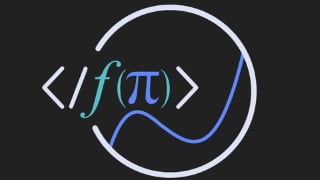Differential and integral calculus
Learn the basics of differential and integral calculus in this comprehensive course. Perfect for beginners in math and computer science.
! THIS COURSE IS STILL UPDATING | I WILL BE DROPPING NEW TESTS ALWAYS!
Course objectives
This course mainly aims to become familiar with the basic tools of differential calculus and to learn about integral calculus. Introduction to differential and integral calculus (from the point of view of applications). Function concept. Reminders regarding exhibitors. Exponential, logarithmic and power functions. Trigonometric functions. Limits and continuity of functions. Derivative of a function. Higher order derivatives. Applications of the derivative. Definite and primitive integral of a function.
Content Summary
Function concept. Reminders regarding exhibitors.
Basic functions
Limits and continuity of functions.
Derivative of a function.
Higher order derivatives.
Applications of the derivative.
Definite and primitive integral of a function.
Applications of integrals
Numerical sequences
Note: This Course is intended to give prospective students an idea of the
content of a typical introductory course in differential and integral calculus in a
Atlantic Region University. Note, however, that there are differences
between the courses of differential and integral calculus in the different universities and
even within the same university.
Why is differential and integral calculus important?
In science, many processes involving variation or variables
related are studied. If these variables are related in a way that involves chance and
an important random variation, statistics is one of the main tools that
we will use to study the existing links. However, in cases where a model
deterministic constitutes at least a valid approximation, the differential calculus
and integral is a tool for efficiently studying the ways in which variables interact. Situations involving rates of change over time
or rates of variation from one place to another are particularly
important.
Physics, astronomy, mathematics and engineering are fields where
differential and integral calculus play an essential role; you can hardly see
how even one of these disciplines would exist in its modern form without calculus
differential and integral. However, biology, chemistry, economics, computer science
and other sciences also use differential and integral calculus. Many
science faculties therefore require all their students to take a calculus course.
differential and integral; in other cases, the student may be able to choose between a
courses in differential and integral calculus, statistics and computer science, for example.
It should be understood that mathematics is not limited to calculation
differential and integral. Linear algebra, probability, geometry and combinatorics are just some of the branches of mathematics covered in
schools that are important at university level. Competences in
problem solving, which affects all branches of mathematics,
allow us to apply this discipline to other subjects.
Who this course is for:
- Beginner in math, differential calculus, integral calculus and math connected to Computer Science
User Reviews
Be the first to review “Differential and integral calculus”
You must be logged in to post a review.







There are no reviews yet.